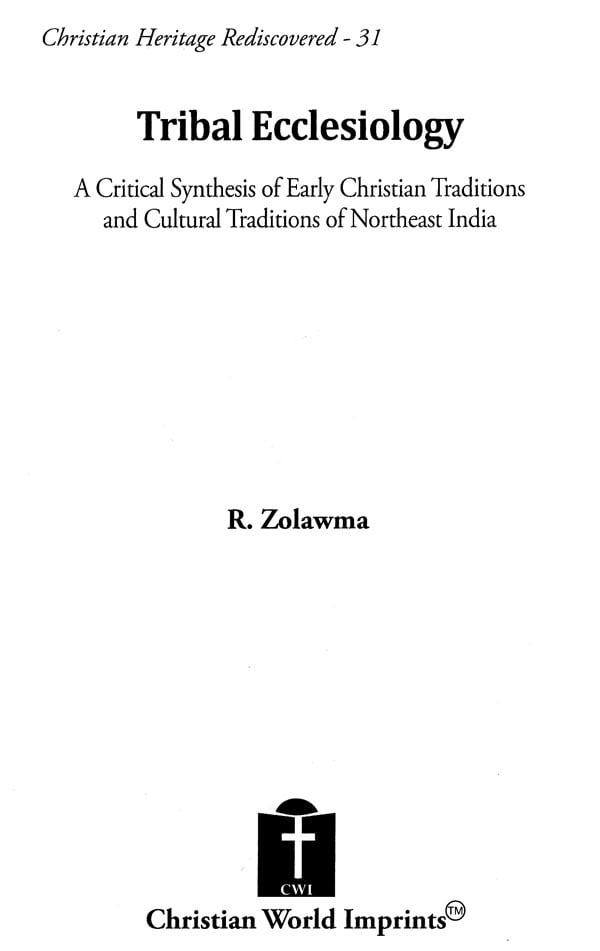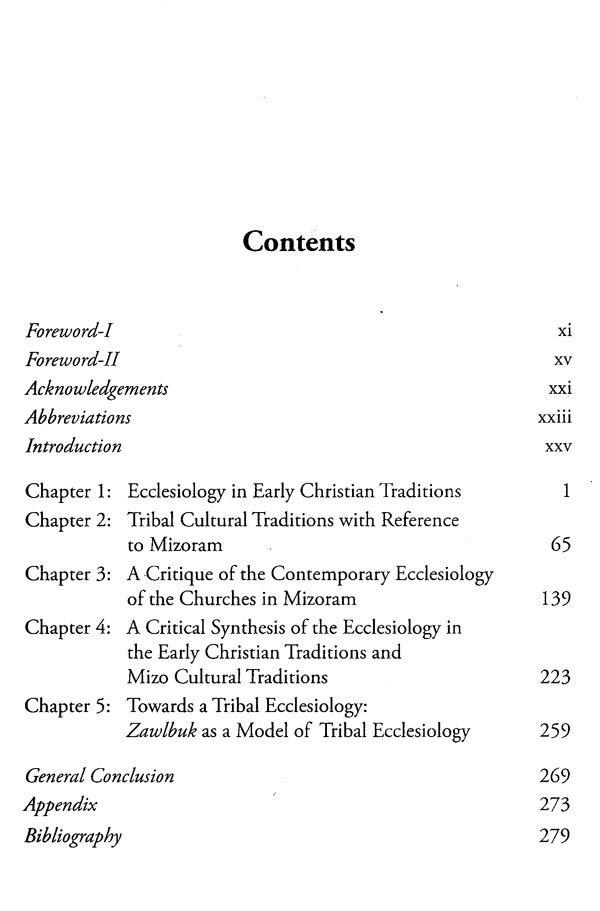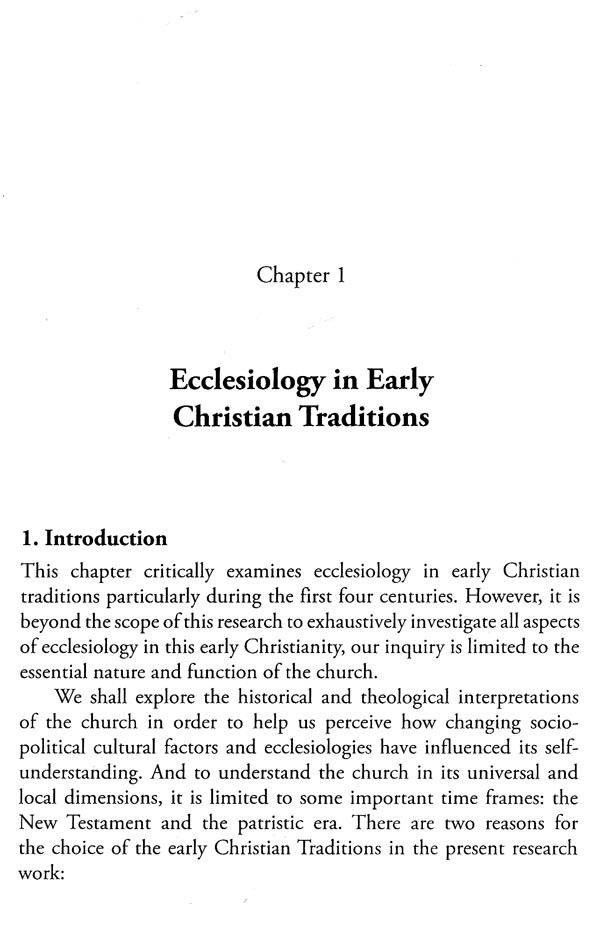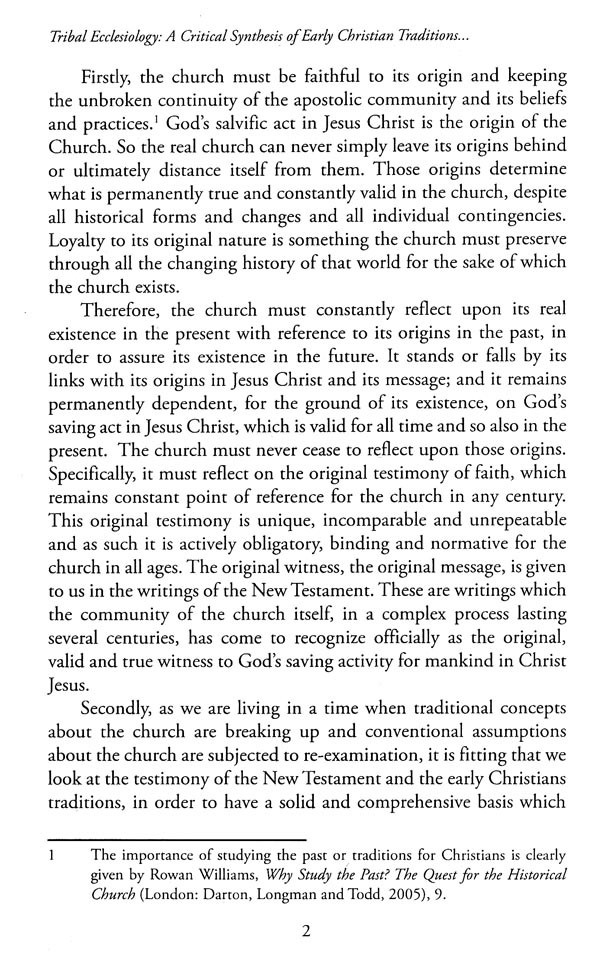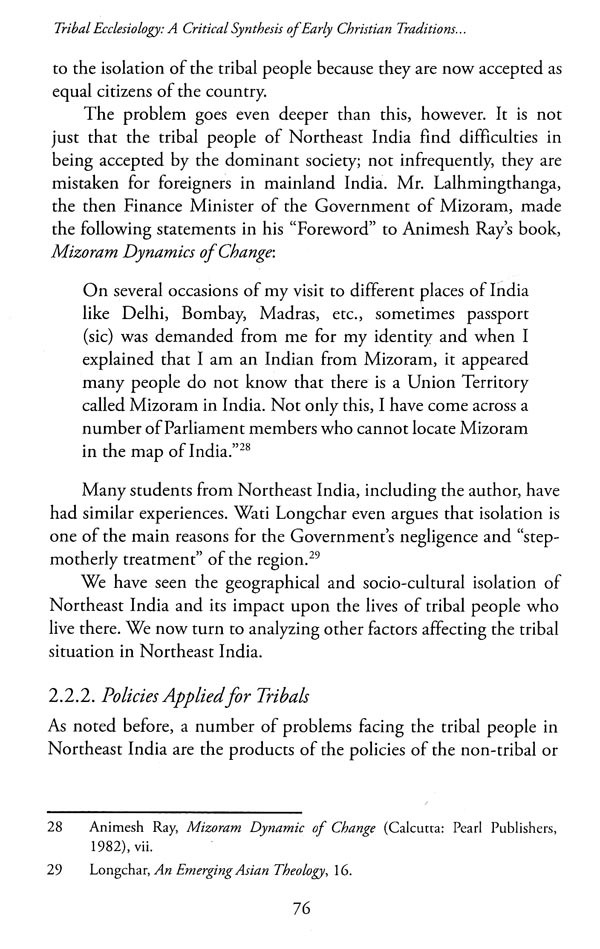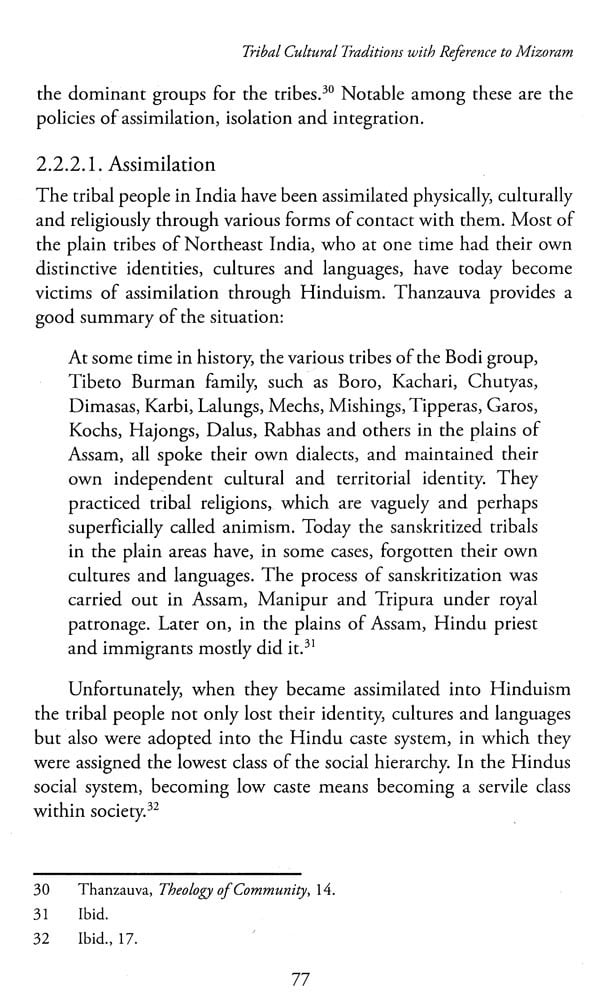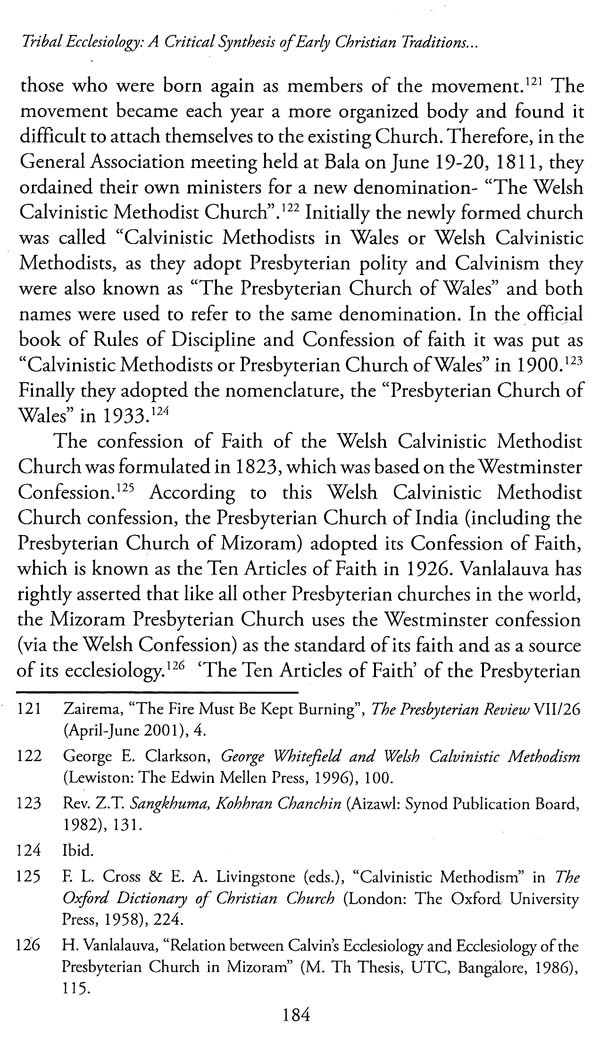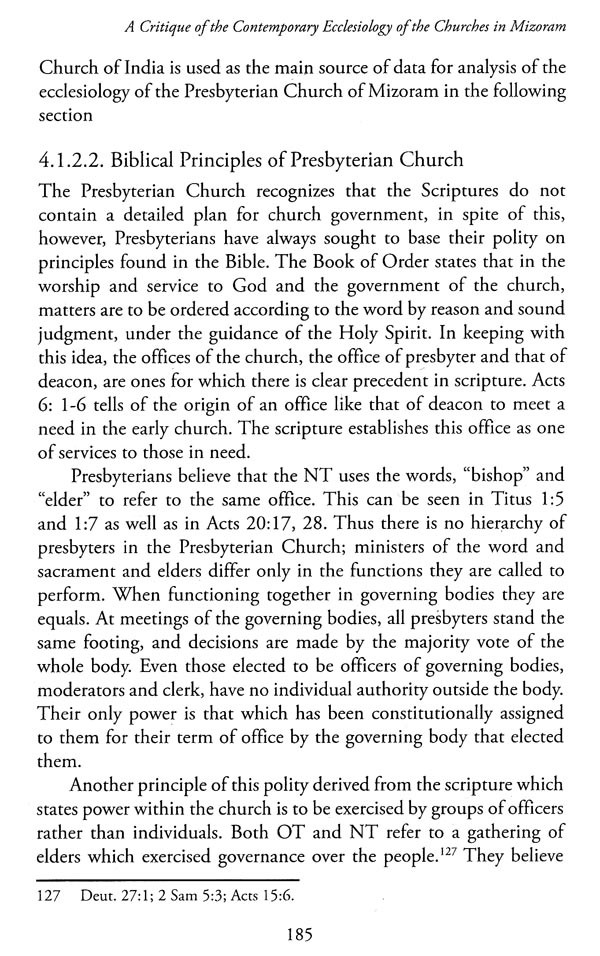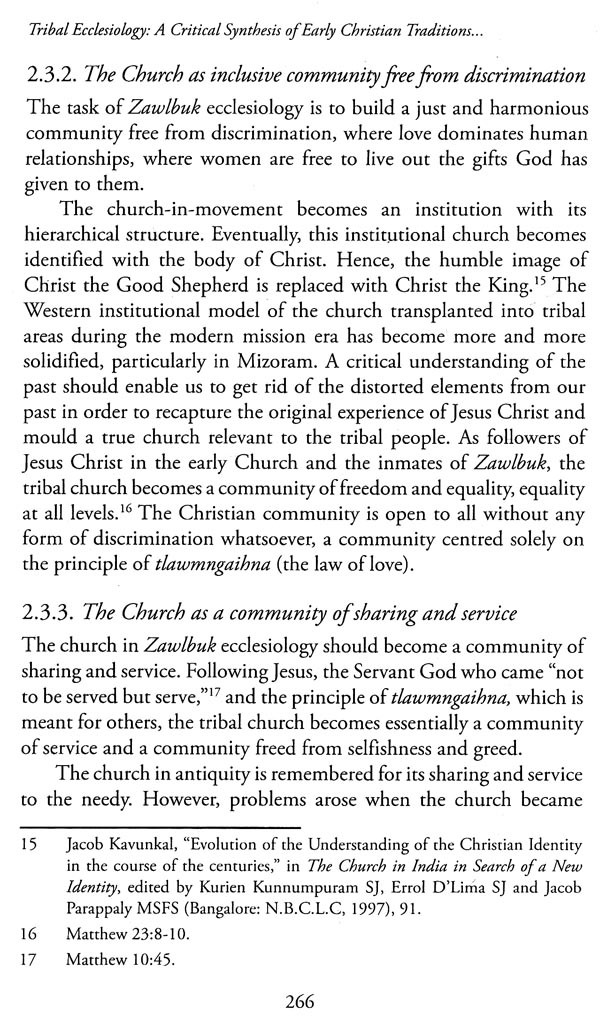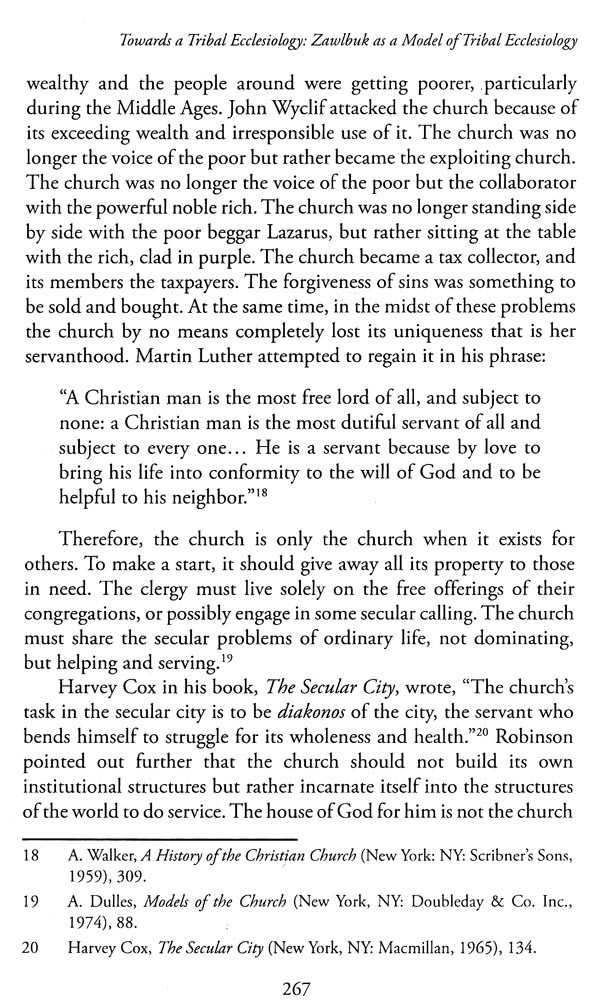About the Book The book is an outcome of exploration of two great traditions - the early Christian traditions and Cultural traditions of Northeast India with a special reference to Mizo society. The author argued that the church is not just an institution characterized by rituals and dogmas alone but, the "church is a called out community" doing God's mission. Having in-depth research, the author argued that the uncritical acceptance of ecclesiology that these tribal churches are inheriting from the Western church traditions has resulted in the proliferation of tribal people in line with different denominations. Also, uncritical rejection of the local cultural traditions has contributed to the superficial character of the church which failed to respond to peoples' problems. Keeping the twin problems in view, the author sought to construct a contextual ecclesiology for tribal Christians, based on the early Christian traditions and Tribal cultural traditions, by adopting a critical synthesis method.
This contextual ecclesiology will draw resources from both, the early Christian traditions and Tribal cultural traditions. This new ecclesiology grounded on the teachings of the Bible is termed as Zawlbuk model of ecclesiology. The author asserts that the tribal churches should follow this model so as to give them a new identity: as a communion of the local Christian community; as an egalitarian community; and as a community of sharing and service.
This landmark research done for the betterment of tribal people critically analyses the past and present ecclesiology and sketches a blueprint for their future course of action.
About the Author R. Zolawma hailing from Tlabung town, Mizoram; is an ordained minister of the Baptist Church of Mizoram. He is an Associate Professor of Systematic Theology and currently serving as Principal of the Academy of Integrated Christian Studies (AICS).
He underwent a thorough theological training at four prominent theological institutions of India. He joined the Eastern Theological College for Bachelor of Theology, and Serampore College for Bachelor of Divinity. However, due to Tribal students' exodus from Serampore College, he came to the ETC again and completed his BD.
He completed his post graduation in Christian Theology from the United Theological College and later on earned Doctorate in Theology from the Federated Faculty for Research in Religion and Culture (FFRRC).
He has contributed numerous articles (in English) in academic books and national Journals, and have published extensively in Mizo also. He is married to C. Sangi and they are blessed with two beautiful daughters, Rebecca and Deborah.
Foreword This book, proposes an ecclesiology in context of tribal people life- setting in Northeast India, giving special attention to Mizoram. The books is the outcome of exploration of two great traditions - the early Christian traditions and Mizo cultural traditions. The author argued that church is not just an institution characterized by rituals and dogma alone but, the "church is a called out community", who are busy in doing God's mission. Having in-depth research, the author argued that the uncritical acceptance of ecclesiology that we inherited from the Western church traditions which resulted in the proliferation of tribal people in line with different denominations. Also, uncritical rejection of the local cultural traditions has contributed to superficial character of the church which failed to respond to people's problems. Keeping this twin problem, the author sought to construct a relevant ecclesiology for tribal Christians in general, and Mizos in particular, based on the early Christian traditions and Mizo cultural traditions.
Introduction The existing ecclesiology inherited from the Western missionaries by the tribal churches in Northeast in general and Mizoram in particular is today found inadequate to meet the needs and aspirations of the people for two reasons: The first reason is the uncritical application of Western church traditions by the tribal Church, and the second reason is its uncritical rejection or acceptance of the tribal cultural traditions and the experience of the people in formulating the doctrine of the church. Consequently, the church, even after hundred of years of its existence on the soil of tribal people, has not succeeded to incarnate fully in the peoples' cultures.
**Contents and Sample Pages**
